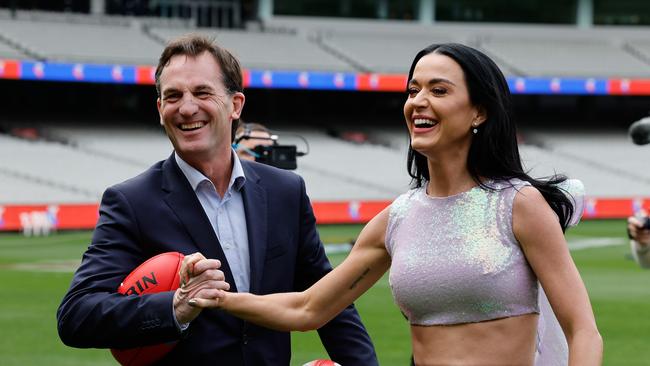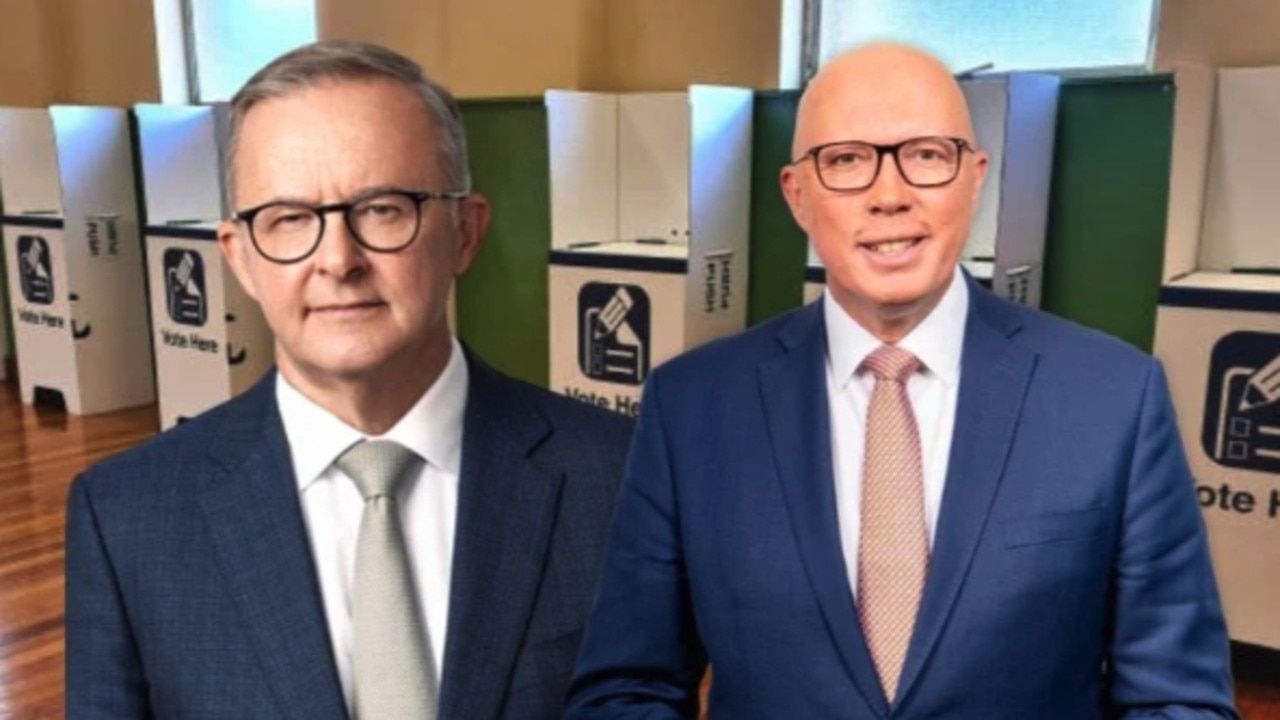AFL heads for $1.25bn income bonanza as record-breaking grand final with pop star Katy Perry looms
The league is in rude health financially, and chief executive Andrew Dillon has a series of strategies to keep the AFL growing – while dealing with player safety and other significant challenges

The AFL will be a $1.25bn business by next year, cementing its status among Australia’s biggest private operations as chief executive Andrew Dillon embarks on a strategy to expand into property development and hunt for acquisitions.
The league should break though the $1bn revenue barrier for 2024, capped by Saturday’s historical grand final between the Sydney Swans and Brisbane Lions at the MCG.
The match will be the first season-decider between two teams from the AFL’s newest territories of NSW and Queensland, the traditional regions of the rugby codes, and the first for the league under Dillon’s leadership.
Mr Dillon described the grand final as “great for the national competition” but said the AFL still had much work to do in the northern states to cement the code’s popularity, with the GWS Giants still struggling to attract fans and the Gold Coast Suns yet to make a finals series since debuting in 2011.
Mr Dillon, who took over as chief executive last October, confirmed the AFL would likely employ independent doctors from next season to rule on player concussions – the subject of a series of stories by The Australian – and head injuries during matches.
“We’re looking at that. We already have emergency physicians at probably more than half the games, and we’re looking at making that more of an Australia-wide thing for next year,” the AFL chief said.
“Concussion [could] be a combination of a club doctor who knows the player better … but there’s other times when there’s an independent one who is solely focused on that (concussion and head injuries), so it is a matter of getting that balance right.
“At the end of every year, we review all of our rules and procedures and that’ll be a focus certainly.”
The possible move comes after a recommendation from Victorian Coroner John Cain last year, following the inquest into the death of former Richmond midfielder Shane Tuck.
Mr Dillon also wants the federal government to stop short of a full ban on gambling advertising and said a huge increase in its broadcast deal next year would mean more money flowed to community football programs, with the aim of one million participants by 2033.
Regarding Saturday’s grand final, Mr Dillon said the match up was also “great for Queensland and NSW and the two teams we have got there” but admitted the AFL’s growth strategy in those states “can’t be reliant on those two teams making the grand final but hopefully it will stimulate more interest there”.
The crowd for Saturday’s match will push the 100,000 mark depending on ground membership attendees, and the AFL has paid American singer Katy Perry an estimated $5m to lead the pre-match entertainment.
Mr Dillon forecast the game would be a broadcasting blockbuster, given the involvement of teams from the two non-traditional AFL states and at least be the third decider in the past decade to top four million average TV viewers.
“I think this will be one of the highest rating grand finals – if not the highest rating grand final we’ve had,” he said.
The league’s TV deal is its biggest revenue source and from 2025 onwards broadcasters Seven West Media and Foxtel have agreed to pay $4.5bn over seven years – or $170m more each year than their current deal.
That will give the AFL more spending power and build on what is already the most impressive balance sheet in Australian sport, boasting $441m in net assets, including ownership of Marvel Stadium in Melbourne’s Docklands.
Revenue should hit $1bn this year, and then about $1.25bn in 2025 with the new TV deal, making the AFL bigger in income terms than businesses such as Mecca Brands and Melbourne Airport, and likely within the top 60 private companies in Australia.
More revenue means more money flowing to junior and development programs, with the AFL committing to 10 per cent of its income flowing to grassroots and community football.
Mr Dillon said the league had its sights on making more money in Melbourne, where it had recently gained approval to redevelop the freehold land its headquarters sits on as part of a joint venture with Development Victoria for a project that could eventually include apartments, hotel and office space.
That project would be worth hundreds of millions and the AFL will also look to acquire other assets, and it will also be contributing $15m for the upcoming stadium in Hobart.
“We’ve got planning approval to go up to 40 storeys here. So that’s a really exciting opportunity for us in the next couple of years,” Mr Dillon said about its property project.
“And then it’s looking at sort of different businesses or adjacent businesses we can [invest] in. We have done that in a smallish way already with investments in Champion Data and PlayHQ, the registration platform for community sport, so we will look for other opportunities as well.”
Another important revenue source is income from gambling companies, including sponsorship deals.
Mr Dillon said the AFL opposed a blanket ban on gambling ads including via digital platforms. “We feel that regulation is needed,” he said. “We’ve been public about that. What we’re working with the government on is how that takes shape in terms of the frequency [of ads appearing] caps, when frequency caps come in, and then also sensible regulation for online. And we’re just working through that.
“I’m not a fan at this stage of prohibition.”



